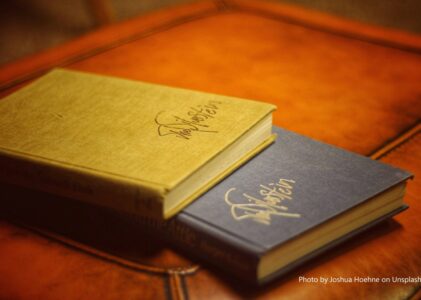There’s a softness that settles over us when we begin to see our lives not through the lens of what’s missing, but through the warm, golden light of what is.
This week, amidst the rush of retreat planning, our Women’s Wisdom Wednesdays, the rhythm of upcoming trainings, bookkeeping, and the focus demanded by a grant application, and a battle with ants, I found myself pausing.
I purposefully enjoyed a quiet moment, with a mug of tea in hand. I had read a passage from Ryan Holiday’s The Daily Stoic, where he shared reflections on Marcus Aurelius and the idea of fortune. And what I read settled into my heart like a seed in fertile soil.
Marcus Aurelius, a Roman Emperor and Stoic philosopher, lived a life that would challenge the strongest of us. Wars. Plagues. The death of nine of his children. A failing body. Yet never do we see him collapse under the weight of grief or bitterness.
Instead, he writes:
“I was once a fortunate man,” he writes, “and at some point, fortune abandoned me.” Even here he counters to himself with hope. “True good fortune is what you make for yourself,” he writes. “Good fortune: good character, good intentions, and good actions.” Whenever he speaks of his ‘misfortune,’ he quickly corrects himself. “No, it’s fortunate that this happened,” he writes. “It’s fortunate that this happened and I’ve remained unharmed by it.”
He reframes misfortune as opportunity.
Pain as a proving ground.
Loss as a teacher.
His words shine not because they ignore suffering, but because they hold it tenderly and choose to grow anyway.
True fortune, he said, is not what happens to us, but how we choose to meet it.
And that, my dear, changes everything.
Reimagining Fortune in Our Modern Lives
How often do we count our fortunes based on what is in our bank account or what we don’t yet have?
The dream house.
The bigger bank account.
The better body.
The perfect partner.
The world around us, especially through the shiny lens of TikTok reels and curated Instagram feeds, whispers constantly:
You need more.
You deserve more.
You should want more.
And we listen.
We scroll through highlight reels of strangers and start to feel dull in comparison.
We buy the latest skincare line, kitchen gadget, self-improvement or exercise program hoping it will finally fill that mysterious, nagging gap inside us.
But more stuff doesn’t satisfy the ache. Doing more does not satisfy the ache.
It only adds clutter. Clutter to our homes, our computers and yes, but more deeply, to our minds and hearts.
Our judgment becomes clouded, not by a lack of wisdom, but by a culture that makes us feel like what we already hold isn’t enough, that we are not enough.
The Treasure We Already Hold
When we pause – truly pause – we can begin to see the richness already woven into our lives.
Not riches in the traditional sense, but the kind that feeds our soul.
Like:
- The soft strength of a woman who’s survived heartbreak and still opens her heart again.
- The quiet courage it takes to begin again after loss or betrayal.
- The peace found in a morning coffee.
- A walk to look at spring’s first blooms.
- Or the giggle of a child.
- The way our bodies carry us – even if aching, even if weary – toward healing.
These, too, are fortunes. They are treasures.
When we tend to these inner riches with love and awareness, our desire for more stuff begins to soften. We no longer chase the next shiny object, or the next generation of smart phones.
We cultivate the gems already nestled in our own lives.
Clearing the Clutter to See Clearly Again
Letting go of unnecessary things—physical and emotional—creates space for clarity. Not just in our closets, but in our choices. In our relationships. In our sense of self.
Every item we own, every piece of decor and drawer of untouched makeup, carries a story or an expectation. And when those stories are born from “not enoughness,” we end up weighed down by the very things we thought would set us free.
Marcus Aurelius reminds us that freedom is an inner state. It comes not from what we accumulate, but from how we think, how we act, and how we choose to rise.
“Good fortune: good character, good intentions, and good actions.”
So maybe we can ask ourselves:
- What if I am already fortunate?
- What if everything I truly need to feel full, to feel purposeful, to feel loved… is already within and around me?
- What if fortune is not a prize to earn, but a presence to notice?
A Gentle Invitation
Today, I invite you to look around your life with softer eyes. Notice the beauty in what you already hold—the laugh lines on your face, the friend who texted “thinking of you,” the sunbeam warming your favorite chair.
Notice your own heart’s resilience. Its desire to grow. Its capacity for joy, even in sorrow.
You are not lacking, darling. You are layered in riches this world can’t always measure.
So, take a breath.
Release the chase.
And let fortune be something you make by living well, loving deeply, and choosing—again and again—to see the good.
Even in hardship.
Especially then.

